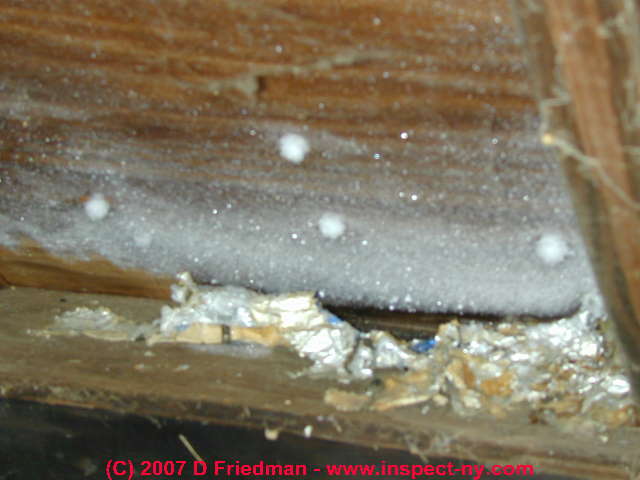The insulation added should have like the homeowner stated created the significant variance in heated living quarter temperatures to the unheated attic temperatures.
Frost inside my attic.
Frost gets into the attic from air leaks or attic bypasses.
Since our minnesota winters are usually dry the only other source of humid air is your living space.
When the outside temperature rises again the frost thaws water collects and can leak into your house.
More indoor humidity more frost in the attic.
When the weather warms up the frost will become water droplets and evaporate harmlessly.
The warm air you are paying for to heat your home is leaking into the attic because your house is not sealed from the attic.
Lower the humidity in the house increase air flow through attic.
Left unchecked frost in an attic can lead to serious mold and decay.
At the present time here s how to stop the frost you re seeing in your attic.
How to prevent frost in the attic frost comes from air leaks.
Lots of ways many of which are small is difficult to detect.
The more humid a house is the more frost you ll find in the attic.
Warm air holds a lot of.
As a practising roofer and consultant i will note that any appearance of frost inside the attic especially if it is vented is a troubling sign.
I ve blogged about attic air.
During winter there are usually three sources of humidity in an attic.
The internal humidity conditions contribute to the internal moisture frost conditions.
When warm air from inside the house escapes traveling up through the bypasses the moisture condenses on the roof boards and rafters where the frost can form.
1 a leak 2 air infiltration from the living spaces and 3 incorrect venting of kitchen bathroom washer drier or plumbing vents.
House pressure affects.
A patch of frost here and there on the tips of roofing nails poking through the sheathing for instance probably isn t a cause for alarm.
How does humid air get from our house and into the attic.

